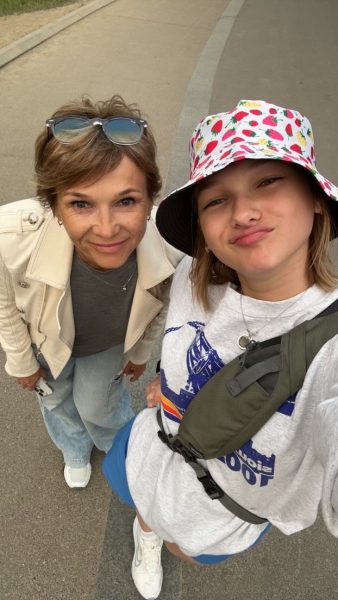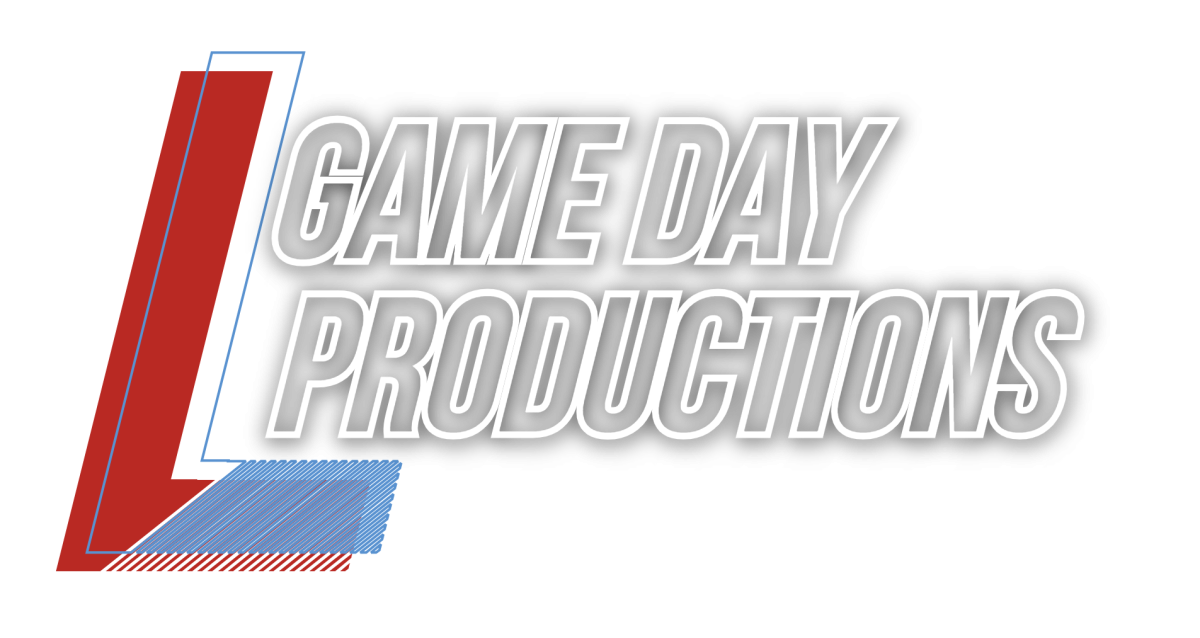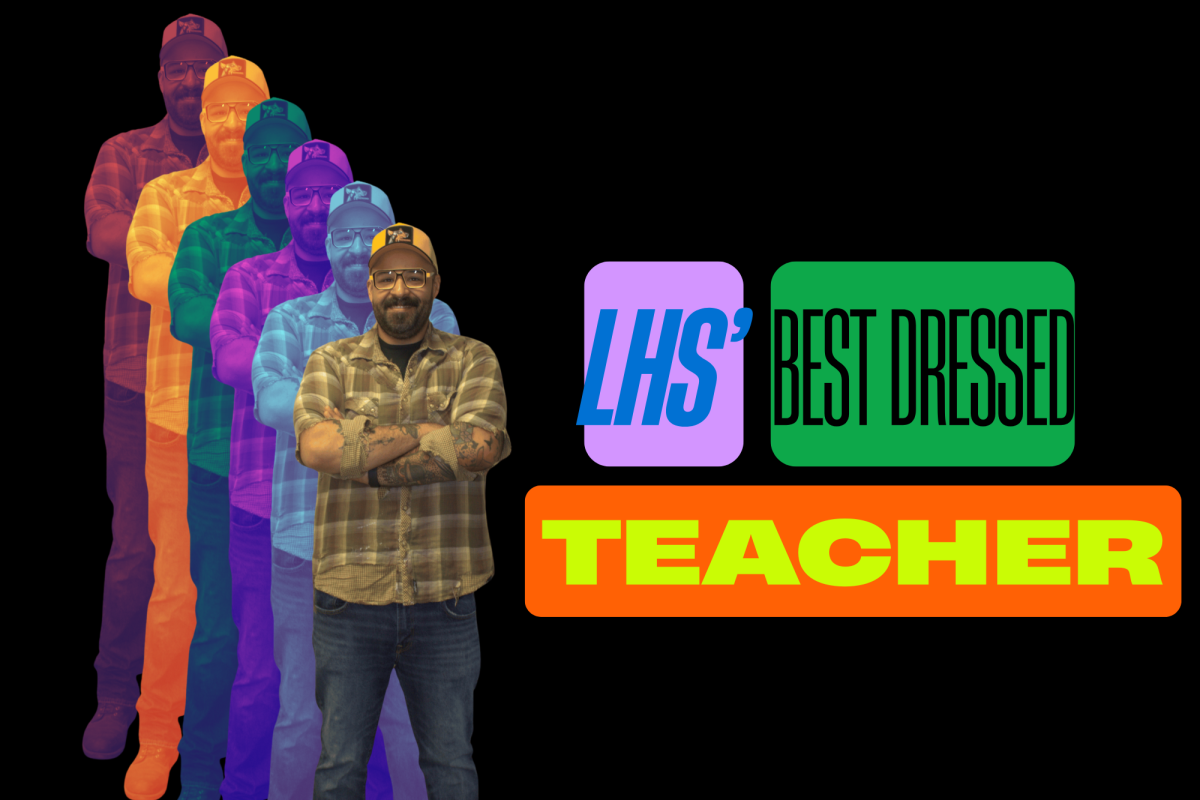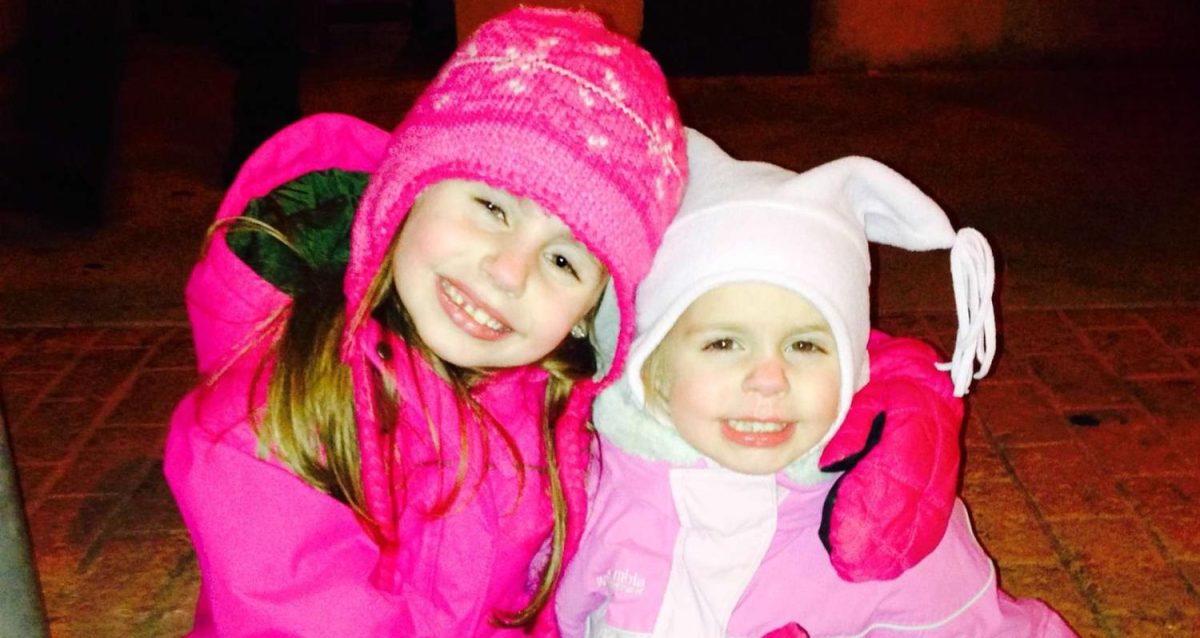Milena Vercellino is a sophomore at LHS involved in Golf, Best Buddies, SALSA and more. But meeting her, you might never know that just a few years ago, her life was debilitated by a severe eating disorder: anorexia.
The National Institute of Health describes anorexia nervosa as a condition where individuals avoid or restrict food and often view themselves as overweight, regardless of their actual physical condition. 28.8 million Americans will have an eating disorder in their lifetime, and every 52 minutes, one person dies as a direct consequence.
Vercellino’s anorexia first began while in seventh grade when she was exposed to a calorie-counting activity in her health class. As a gymnast, she was self-conscious of her body and began to limit her calories to lose weight. As her behavior progressed, Vercellino dealt with insomnia, fatigue and fainting spells. Despite having lost a significant amount of weight in a short period of time and suffering serious physical symptoms, her family doctor told her that her experience was a normal occurrence in teenage girls and not something to be concerned about.
“I would pass out a lot, and in the mornings I would wake up and I would just fall over. I couldn’t see anything, it was all black. So, that would happen a lot,” said Vercellino. “I was gray and blue; there was no color in my face, and I wouldn’t eat family meals.”
Vercellino’s mother realized she had a problem and began to seek treatment, although Vercellino was still unwilling to admit the gravity of the situation.
“[When] you have poor body image and body dysmorphia, you don’t know what you actually look like. But everyone could tell that I had a problem, except for me,” said Vercellino. “At my lowest…I was barely alive.”
Vercellino’s condition was serious, if proper action had not been taken quickly, the outcome could have been fatal. Finding a medical professional to fit her needs, however, was no easy task due to a lack of availability. In Vercellino’s experience, treatment for an eating disorder requires many hands on deck including doctors who can address both mental and physical aspects of the disorder.
“In the state of South Dakota, there’s an incredibly limited amount of dieticians that are specialized in eating disorders as well as therapists,” said Vercellino. “[Eating disorders are] never about the food. It’s about control. So, the big thing about eating disorders is that you want that control, at least for anorexia, and bulimia as well… so that’s what I wanted because at that time, my whole life was unstable.”
After months of waiting, she finally connected with a therapist and dietician who would begin her treatment and introduce a meal plan. However, given that eating disorders have the second-highest mortality rate of any psychiatric illness, many cannot afford to wait that long.
“We had to wait for two months for a dietician to open up because it’s a really big problem, globally eating disorders are, and there’s such a lack of available people that can help and resources,” said Vercellino. “My organs were shutting down, nothing was good. So then we had to wait all the way until January to start my treatment, and that was really awful.”
Once Vercellino had begun the long road to recovery, it took a year for her to return to a healthy weight. Although treatment was incredibly difficult and emotionally taxing, one presence remained a constant motivator in Vercellino’s life: her mom. Vercellino’s mother did everything she could to get her daughter the help she needed to make sure she stayed on the right track. At times, anorexia drove a wedge between Vercellino and her loved ones; she recalls fighting with her mother over meals, but now recognizes the necessary role she played. In the end, the tough love proved to be worth it.

“My mom’s been my person; she’s always there for me. I would be like: ‘mom, I don’t wanna eat today,’ and she’s like: ‘okay, that’s tough, you’re going to anyway.’ She was assertive when she needed to be. But also when I just needed to sit there and cry, she was there for me too,” said Vercellino.
Even now, Vercellino realizes that this is an everyday effort and something she has to work hard at to improve. She wants others to know that these problems do not just go away overnight, they require intentionality and time. It is not always easy, but the reward is well worth the effort.
“Once you’re at a healthy weight, that doesn’t mean you’re recovered. I’m never gonna be recovered; this is gonna be something I have to deal with for the rest of my life,” said Vercellino. “It’s not as bad as it used to be, but it’s still something that I struggle with. And I think it should be acknowledged that people still struggle with it every day, even if they’re at a healthy weight and they went through treatment.”
Vercellino knows that progress is not linear; in 2022 she experienced a hardship that impacted both her and her recovery: the passing of her father. Although this was a challenging time for Vercellino, with each setback, she can come back a little stronger and is motivated to make her dad proud of the person she has become.
“My dad passed away and I relapsed a little bit, which was really hard because I had relapses before, but not like that because I didn’t know what to do with myself. It was hard for me because my dad was always that person that would sit with me while I ate and make sure that I ate everything and he would support me,” said Vercellino. “But the summer of 2022, I just made it a point that if I’m going into high school, something has to change. I need to be a person that my dad would be proud of seeing, so then I tried really hard over the summer to stay on track.”
Although many of her school peers were aware of her eating disorder, hardly anyone acknowledged it, and Vercellino even dealt with bullying. She believes those around her were simply afraid because they did not understand the situation and there was no open dialogue. She hopes this will change in the future and that others can understand and learn about eating disorders.
“I like talking about it because I like educating people about it because I feel like it’s not talked about enough. A lot of people are uneducated about it and don’t understand how severe it is. I feel like other people judged me for [my anorexia], but what they didn’t realize is that it’s not something that I’m controlling. It’s not my fault.” said Vercellino. “Nobody talks about it; they tiptoe around it. But you’re not gonna fix the problem if you don’t talk about it.”
Vercellino finds it important to speak out about this issue and confront it head-on rather than avoiding it. She did just this in May of her eighth-grade year at Patrick Henry Middle School when she participated in a district-wide poetry slam. Vercellino wrote her poem about her experience with anorexia and went on to win the poetry competition for her class, then grade, then school and eventually advanced to the district level with other eighth graders from Sioux Falls.
“[The poetry slam] was so scary, but I felt like it was really important because nobody talks about it unless it actually happens to them, because I feel like people don’t realize that it’s a real thing,” said Vercellino. “And then a lot of people that came up to me after and were like, ‘thank you so much for sharing your story. I also struggle with like my relationship with food and all this stuff.’”
The value of sharing and connecting with others is evident to Vercellino. One resource she found helpful during recovery was a support group of others dealing with eating disorders. Two older girls from the group in particular, Bella Krenik and Sophie Siegel, were especially crucial, becoming models she could look up to and providing her with hope for the future.
“I met a lot of really good people that showed me that it does get better. I feel like that’s really, really important in recovery, is a group of people that are going through the same thing you are,” said Vercellino. “[The older girls] were really big recovery role models for me because they were in high school and I was in eighth grade and I was like, ‘okay, they struggled with it too and now they’re doing great. They still have their bad days, but they’re good now. That was just something that I needed to see, that other people like me could recover.”
Knowing there are people she can talk to if needed is key for Vercellino, and she encourages others to be there and look out for one another.
“You need a big support group that’s strong when you’re dealing with anything mental health-wise. And nobody likes talking about it because it’s like: ‘oh, you’re depressed. Okay, that sucks. What am I supposed to do about it?’ But you need to be there for those people if they need you to be there,” said Vercellino. “Pay attention to your friends, pay attention to their habits and if things start changing over a period of time, if you notice some changes, ask them about it. And it might be uncomfortable at first, but you have to ask because you don’t know what’s going on.”
Vercellino believes that those who struggle with eating disorders are often scared to look for treatment because of denial or fear that they will be viewed differently. However, she has advice for anyone who might be experiencing something similar to what she went through.
“Look for help. I know that you don’t want to, and I know you’re gonna fight, but you don’t know how much life you are missing out on and your friends and your family until you don’t have that anymore,” said Vercellino. “Just talk to someone who you know can help find you help and just work on it. Try. You’re gonna have bad days…but you have to keep going because you have to live. You have to.”
Vercellino stresses that eating disorders can be overcome. A person’s struggle does not represent who they are, nor does it determine the course of their life.
“Just because a person has an eating disorder, it doesn’t define them as a person, it doesn’t make them less than or anything like that,” said Vercellino. “It doesn’t make them selfish or conceited because they’re focused on their looks or something, because it’s not about that. You are not your eating disorder…I’m recovering from an eating disorder, that does not define me as a person though.”
Vercellino’s progress both physically and mentally is a testament to her strength and has allowed her to be the woman she is today, to spend time with her loved ones and to find joy once again. Though anorexia once took over her world, she has reclaimed her body, spirit and most of all, her life.










Ayden Russell • Jan 30, 2024 at 11:59 pm
I’m very proud of you for sharing your story. I just wanted to say Thank You Milena. Your identity does not and never will define you, your efforts from the inside do. “Problems cannot be fixed by not talking about them”- 100% true. 2024 is your year, God is with you. You just matter❤️.